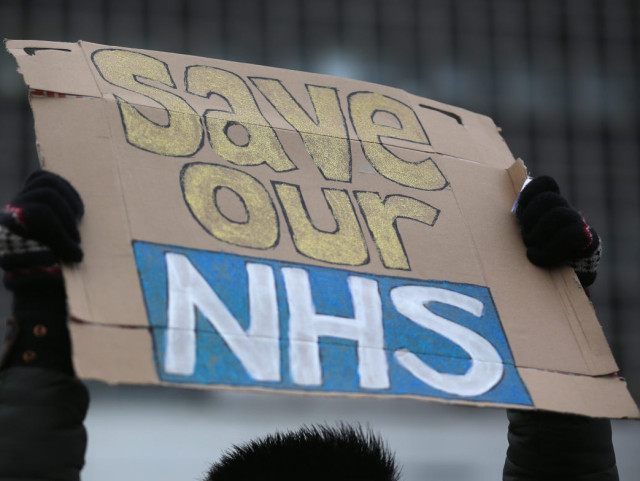Leaving the European Union (EU) could save the NHS, a leading doctor has said, as Britain would make a net saving of £8 billion a year by withdrawing from the bloc – money which could be used to close the NHS’s current funding gap.
A Brexit would also free the Health Service of the strain placed on it by unlimited immigration from European member states, allowing its staff to focus on British patients who have paid into the system.
Writing for the health and well being site NetDoctor, which aims to give impartial advice from respected sources, Dr Max Pemberton, a well-known psychiatrist and author, has laid out what a vote to leave the EU might mean for the NHS.
He points out that the NHS currently faces a predicted £30 billion funding shortfall in the next four years. Even with expected efficiency savings of £22 billion, there is still another £8 billion which will have to be found somewhere.
Yet Britain currently pays £15 billion a year in EU membership, of which just £7 billion in recuperated through EU funding grants and subsidies. “[I]f we leave the EU, then even if we still spend the £7bn we currently get in grants and subsidies, that still leaves us with over £8bn, which will mean we can easily meet the current NHS funding shortfall,” says Dr Pemberton.
At the same time, part of the funding crisis is coming about thanks to the strain that unlimited migration from the EU member states is placing on the Health Service. Maternity services in particular are hard hit, as migrants are more likely to have children than their British counterparts.
Although the British government can recoup costs from its fellow EU governments, the amount actually collected is steadily falling. According to Dr Pemberton, hospitals claimed £49.7 million last year, down from £50.7 million the year before. But at the same time, the government handed over £674 million to European governments for treating British citizens abroad.
“The reality is that we are owed far more than we receive each year. This ‘gap’ in what we are owed and what we actually receive is estimated to be about £600million a year.” Dr Pemberton says.
Addressing concerns that leaving the EU may prevent British patients being sent abroad for treatments not currently available in the UK, Dr Pemberton is dismissive, pointing out that some patients are also sent to America. The arrangements for international treatment, therefore, have “nothing to do with” the EU, he says.
Yet the EU’s commitment to allow citizens to seek treatment in whichever country they chose leaves the NHS open to exploitation, he says.
“It’s important to realise that amongst the EU countries, the NHS is unique. No other country operates a system quite like it whereby healthcare is entirely free at the point of access and entirely funded by taxpayer’s money.
“This notion of ‘nationalised risk pooling’ – whereby everyone pays in to one system that then provides for everyone who needs it – is easily abused or misused by those who can come to the UK under EU free movement legislation, receive free healthcare and then return to their country.”
Dr Pemberton acknowledges that there would be some drawbacks to leaving the EU – the Health Service has a huge requirement for staff and currently draws around 10 percent of its doctors from the EU.
He also cites the loss of EU-funded public health campaigns and EU work-place regulations as potentially negative outcomes of a Brexit, although many Brits fed up with the hectoring nanny-statism of the EU may disagree.
However he concedes that “probably the biggest danger facing the NHS in the wake of a Brexit” would be potential disruption to the economy, which would then have a knock-on effect on the NHS’s funding.
This is an idea which has been roundly dismissed time and again by pro-Brexit campaigners, who point to the EU’s rapidly diminishing share of world trade and argue that, on the contrary, unshackled from the EU the British economy is likely to thrive.
Speaking to the Sun on Sunday earlier this week, Work and Pensions Secretary Iain Duncan Smith made this very point, saying: “The truth is, the EU is holding us back completely. We’re only halfway there. Just think how good we could be if we broke from these people and traded and co-operated with them instead.”

COMMENTS
Please let us know if you're having issues with commenting.